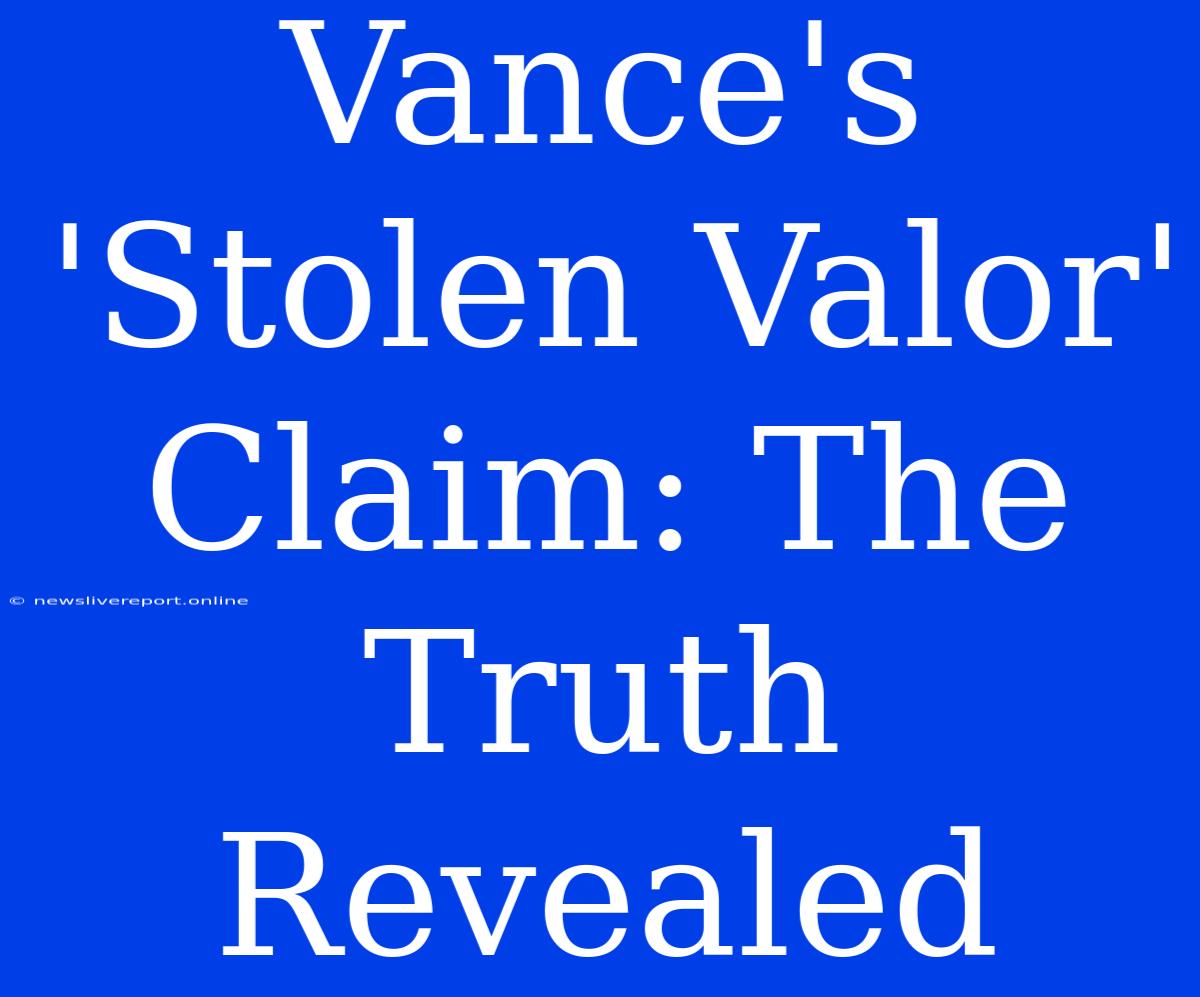Vance's 'Stolen Valor' Claim: The Truth Revealed
The 2022 midterm elections brought with them a plethora of controversies, but one particularly striking claim emerged from Republican candidate J.D. Vance, who was running for a Senate seat in Ohio. Vance, author of the bestselling memoir "Hillbilly Elegy," asserted during a campaign event that he had served in the military and earned a Purple Heart. This assertion, however, was quickly challenged, with evidence surfacing that contradicted his claims.
This incident raises significant concerns about the ethical implications of misrepresenting one's military service, particularly for political gain. It also highlights the importance of accurate information in the political arena.
The Claims and the Evidence
Vance, during a campaign rally, stated that he had served in the military and had even received a Purple Heart. He elaborated, suggesting his service involved deployments in the Middle East. However, investigations conducted by fact-checking organizations and media outlets revealed that Vance never served in the military. His military records, obtained via Freedom of Information Act requests, showed no evidence of military service or awards.
This discrepancy between Vance's assertions and the reality sparked intense scrutiny. It prompted questions about his motivations for making such a claim and its potential impact on voters.
The Aftermath
Vance's "stolen valor" claim faced significant backlash. Critics accused him of exploiting the respect afforded to military veterans for political advantage. His campaign was forced to issue clarifications, acknowledging that the statements were inaccurate. Vance, however, maintained that his misstatements were unintentional, blaming them on a "slip of the tongue" and memory lapses.
While Vance ultimately won the Senate race, the "stolen valor" controversy cast a shadow over his campaign. It illustrated the potential consequences of misrepresenting one's background, especially when seeking public office. The incident highlighted the crucial importance of truthfulness in politics, especially when discussing sensitive topics like military service and personal experiences.
A Larger Lesson
The Vance "stolen valor" case isn't an isolated incident. It reflects a broader societal issue: the increasing prevalence of misleading information and the ease with which it can spread in the digital age. This incident serves as a reminder of the critical need for careful vetting of information, especially when it comes to public figures.
The case also underscores the significant respect that American society has for military service. The act of "stolen valor" dishonors the sacrifices made by genuine veterans and undermines the trust we place in those who claim to have served our country. It is essential to acknowledge and respect the truthfulness of such claims and hold those who make false assertions accountable.
The Vance "stolen valor" controversy should serve as a lesson for politicians and the public alike. It highlights the need for honesty and transparency in all aspects of public life, especially when seeking positions of power.

